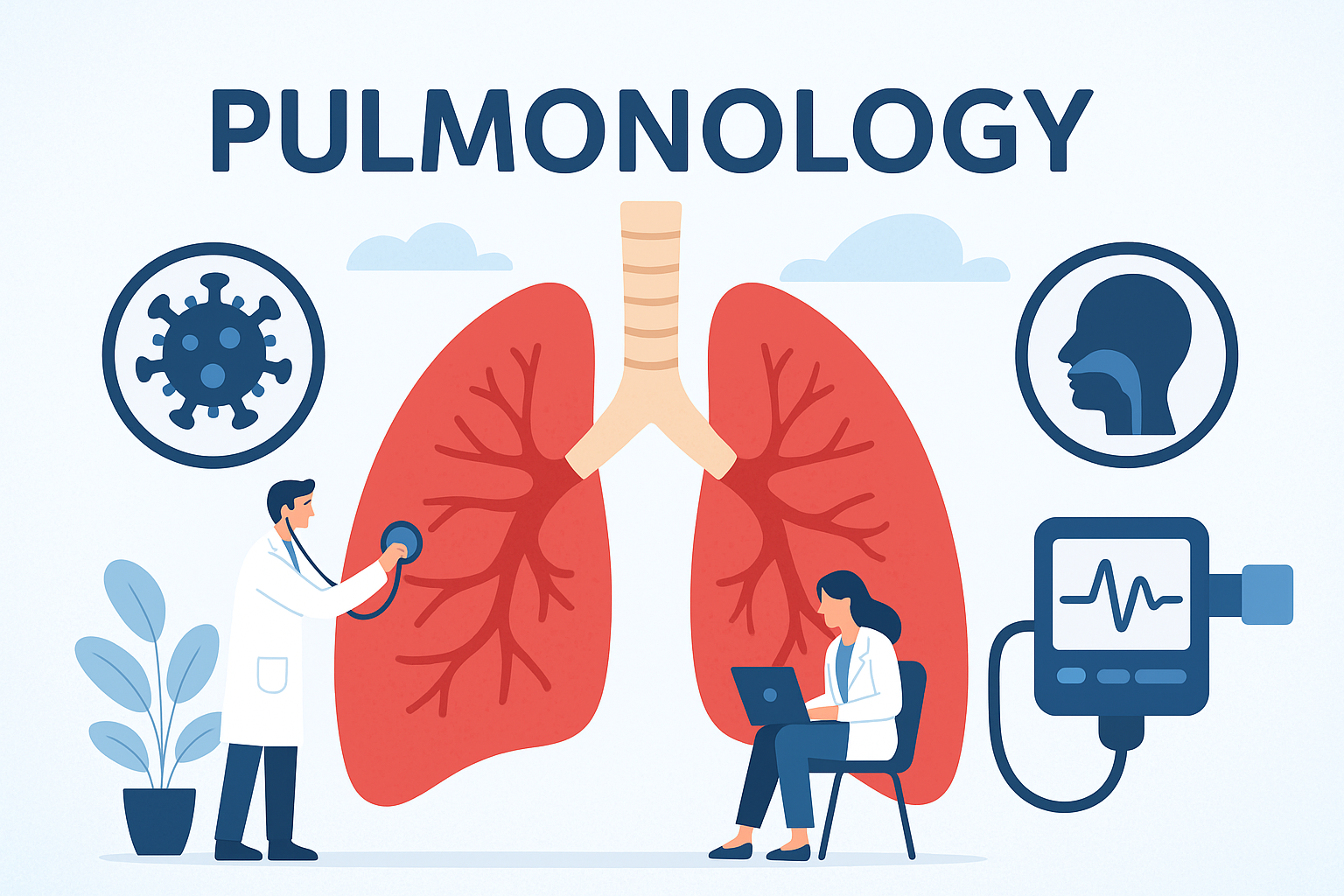
Understanding Pulmonology
Pulmonology is the branch of medicine that deals with respiratory health, including the lungs, bronchial tubes, and related structures. Common symptoms such as shortness of breath, wheezing, persistent cough, or chest tightness should never be ignored.
At Rudray Hospital, we combine clinical diagnosis, pulmonary function testing, and individualized treatment plans to help you breathe easy again.
Conditions Treated by Dr. Smit Patel
| Condition | Description |
|---|---|
| 🫁 Asthma | Inflammation of the airways causing breathing difficulty, tightness, and wheezing |
| 😮💨 COPD | Chronic Obstructive Pulmonary Disease, includes bronchitis and emphysema |
| 🌬️ Bronchitis | Infection of the bronchial tubes, leading to coughing and mucus |
| 🦠 Pneumonia | Lung infection caused by bacteria or viruses |
| 💤 Sleep Apnea | Interrupted breathing during sleep, leads to fatigue and snoring |
| 🤧 Allergic Rhinitis | Nasal allergies triggered by dust, pollen, weather |
| 🧪 Tuberculosis (TB) | Active or latent lung TB cases, managed carefully |
Symptoms You Shouldn't Ignore
- Persistent cough (more than 2 weeks)
- Wheezing or chest tightness
- Difficulty breathing or shortness of breath
- Snoring or fatigue during the day
- Frequent respiratory infections
- Blood in sputum
- emergency help available 24/7
Diagnostic Services Available
Advanced tests to help diagnose and manage your respiratory health.
🔬 Chest X-Ray
Visualize lung and chest structures for deeper insight into your respiratory health.
📉 Spirometry
Measures airflow and lung capacity to detect conditions like asthma and COPD.
🛌 Sleep Study (Polysomnography)
Monitors sleep cycles to diagnose sleep apnea and related disorders.
💉 Sputum Test
Analyzes mucus for signs of infection or tuberculosis.
🧪 Allergy Panel (Skin/Blood)
Detects allergic reactions to environmental triggers like pollen or dust.
Treatment Options
FAQs
Yes. Any cough over 2 weeks should be evaluated to rule out infections, asthma, or TB.
A: If you have previous reports (X-rays or blood tests), bring them. Otherwise, tests are available in-house.
A: Not at all. When prescribed correctly, inhalers are safe and essential for asthma/COPD control.